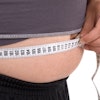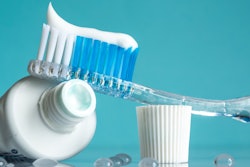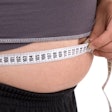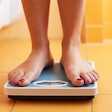
Eating breakfast may be more important than most people thought. Regularly skipping breakfast may be linked to periodontitis prevalence, according to a large study recently published in the Journal of Periodontology.
Individuals who regularly skipped breakfast may be more than 1.23 times more likely to have periodontitis compared to those who ate in the morning, the authors wrote.
"Eating breakfast regularly may reduce the risk of periodontitis, which supports promoting regular breakfast consumption for public health," wrote the authors, led by Guoli Yang of the school of stomatology at Zhejiang University in China (J Periodontol, June 8, 2024).
About 30% of adults have periodontitis, which correlates with systemic diseases, including diabetes and high blood pressure and poses a public health challenge.
Skipping breakfast may cause low blood sugar and a rise in lipid oxidation that leads to chronic inflammation. Additionally, failing to eat breakfast can unsettle sugar and lipid metabolism, which can affect inflammation status. Furthermore, past studies have indicated that the metabolism of glucose and lipids along with systemic inflammation may affect the correlation between nutritional habits and gum disease.
To explore the association between skipping breakfast and periodontitis and the mediating roles of sugar and lipid metabolism and systemic inflammation, data from 11,953 patients were analyzed. Logistic regressions were conducted, and a subgroup analysis was done with factors, including age, sex, body mass index (BMI), urban residence, education level, marital status, and diabetes. Also, modeling assessed potential mediating factors related to glucose and lipid metabolism and systemic inflammation, according to the study.
A positive connection was found between breakfast-skipping and periodontitis (odds ratio [OR] = 1.234 [1.026-1.483], p = 0.025). Furthermore, there was a significant increase in the presence of gum disease among those who reported "almost never" eating breakfast compared to those who reported having breakfast between five to seven times weekly (OR = 1.299 [1.090-1.564], p = 0.006), they wrote.
Moreover, there was an association between regularly not eating breakfast and periodontitis that could somewhat be explained by the mediating effect of glucose (β ± SE = 0.006 ± 0.002, p = 0.014), triglycerides (β ± SE = 0.004 ± 0.002, p = 0.033), and white blood cell count (β ± SE = 0.011 ± 0.003, p = 0.003). This analysis may unlock the mechanism underlying the association between not eating in the morning and gum disease, the authors wrote.
Nevertheless, this research had limitations, including the cross-sectional nature of the study. It precluded theorizing about a causal correlation between not eating breakfast, mediating factors, and gum disease due to a potential bidirectional relationship, they wrote.
To further validate the study results, longitudinal and interventional studies should be conducted in the future, the authors wrote.
"This present study demonstrates a significant association between breakfast-skipping and periodontitis especially in middle-aged individuals, potentially mediated by glucose metabolism, lipid metabolism, and systemic inflammation," Yang et al wrote.



















